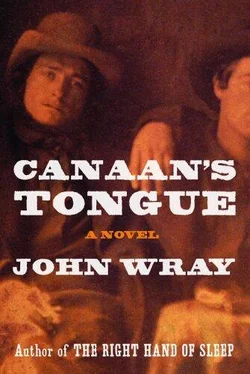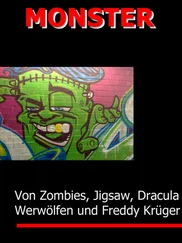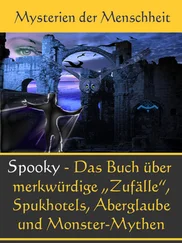ISLAND 37 WAS THE CRADLE OF THE TRADE, Virgil says. But the Trade had no need of a cradle any longer.
The island was a much-fabled port of call—; not every steam-boat would put in there. When the state of Louisiana was chartered, it laid claim “to the mid-point of the river,” and the state of Mississippi “to the channel”—; a simple enough division, on the face of it. Six years later, however, a rogue thumb of current carved a long, flat sliver out of the Mississippi mainland, well out into the river but short of the mid-point by half a mile. The new-born island belonged as much to one state as to the other, and owed allegiance, by law, to neither. It was a country to itself.
Decades passed, and the residents of the thirty-seventh island upstream from New Orleans — an overnight passage by steam-ship— grew down-right cozy in their solitude. The absence of law, not to mention tax-collectors, made it a haven for fugitives of every stripe. For the Redeemer, of course, it was paradise itself. In no time at all 37 had become his play-pen, and he — as a matter of course — had become its Lord Regent. He had no further need to scour the country-side for suckers, he was fond of declaring—; on 37 the suckers came to him, and they came politely.
The sailing-bell rang behind me and the Vesuvius hove off. The pilot’s name was Henderson — a Scotchman — and he’d been a share-holder from the beginning. The Redeemer had got ahold of him the same way he’d gotten all of us—: partly by blind chance, partly by design, feeling his way like a crawdad toward his present empire.
No-one was waiting to meet me on the freshly white-washed pier, which didn’t surprise me much—: it was going on six, and the fleshpots at the top of the bluff would be packed to overflowing. The neat white shacks along the water glowed prettily against the bank, their shuttered porches flickering like paper lamps—; here and there a sullen-faced boy or an old woman would nod to me as I passed. For all one could see or hear from the landing itself, 37 was a sweet-water hamlet like any other.
The sleepiness of the water-front never failed to charm me. As always, I felt a quiet temptation to find some ragged pallet in an empty room, hang up my coat, and delay my interview as long as possible. Had I examined this desire, my reluctance to keep my appointment might have struck me as curious—; but I did not examine it. After a few instants’ hesitation I went on up the slope to meet with my Redeemer.
I found him in his usual warren in the basement of the “Panama House” saloon, holding court before six or seven flat-boat roughs of the sort you’d be more likely to stumble over in some piss-soaked alley than meet with on the river. The week before, it had been a clutch of Presbyterian clergy-men—; the week before that, Mandarin Chinese. The clambering vines of our “corporation”—as the Redeemer had come to call it — left no patch of light uncourted. Rumors had even begun to circulate that some of the finest houses in the South — and above the Mason-Dixon Line, as well — were serving as its trellises.
You’d never have guessed it, however, from the gathering in the Panama House that night. The boat-men were sitting in a clump on the straw-battened floor, passing a pail of rotten-smelling shine between them—; a riper bunch of gallows-apples could not have been got together. The Redeemer sat cross-legged on a padded stool he’d had specially made in Baton Rouge, presiding over the goings-on like a wax saint in a crèche. Smoke from Chinese incense and skunk-weed cigars closed the room in like a tent—; whatever compulsion I’d felt to present myself vanished completely. I was about to turn to go when the Redeemer caught sight of me.
“Virgil!” he sang out, granting me that particular smile — at once conspiratorial and shy — that never failed to convince me that my most private thoughts were known to him. “Come sit down with our friends from the Butternut Society.”
“Beg pardon, sir—; I’d rather not.”
He’d developed an acute sensitivity to my moods over the years, and an even stronger indifference to them—; tonight, however, proved a rare exception. Leaning to one side, as if to get his head around the smoke, he studied my face for a moment, then slid down off his stool, bowed to his guests, and led me wordlessly upstairs. We passed through the bar like spirits, side-stepping the first bowie-fight of the evening, and continued up to the second floor, where a small suite of rooms had been set aside for Trade affairs. The Redeemer lit a candle, motioned to me to shut the door, then guided me by the wrist — as one might lead a debutante in a quadrille — to a table flanked by two low chairs.
“Well, dear Kansas!” he said at last. (We were both still on our feet—: the table and chairs had a definite purpose in our ritual, and its moment had not yet come.) “Well!” he said again.
“How runs the Trade, sir?”
“Weakly, Virgil. Totteringly.”
This answer took me quite aback—: the usual response was “ineluctably,” “indefatigably,” or some equally luxurious term.
“What is it, sir? Have the returns let up?”
“Oh, the returns are right enough! It’s nothing fiscal. ” He smiled in a melancholy way, and tugged once — pensively — on his right ear.
My alarm deepened. “Tell me, sir! What is it?”
He made a delicate gesture of regret. “Politics, Virgil, since you press me.” His eyes met mine for an instant, then slid dolefully away. “I have it on good authority that we’re to be voted out of office.”
“What—! The Trade?” My voice rang out stupidly in the empty room. “I wasn’t aware — beg pardon, sir — that we’d ever been elected.”
A look of genuine bitterness crept into his eyes. “A poor choice of phrase, Kansas. Forgive me.” He went quiet for a time, then added softly—: “You can leave a man hoeing in a field his health, his hoe, and his liberty, mon frère. But that won’t do much good if the field’s pulled out from under him.”
I said nothing for a time, attempting, as I so often did, to sift for meaning in his blather. “The Abolitionists, sir?” I said at last.
He nodded. “Between those righteous angels above us, dear K, and the plantationers below, this confrérie of ours”—peppering his conversation with Frenchisms was a recent affectation of his—“may soon run out of runaways!”
I blinked at this a moment. “How, for God’s sake?”
“Through the complete and utter abolishment of slavery, both in the territories and the states.”
I let out an uneasy laugh. “Respectfully, sir, you can’t believe all the rubbish that gets talked downstairs. You’ve been holed up in this back-water too long. Nobody I’ve come across is ready to toe the Federal line—; not yet.” I shook my head decidedly. “They’d prefer to die.”
“They may have to,” the Redeemer said. When I tried to speak again he hushed me with a flutter of his kid-gloved hands.
“Enough talk. Let’s proceed.”
“But you can’t actually credit—”
The hand flew up again. “ Repose, Virgil! Cultivate repose.” He frowned at me a moment. “I may be ‘holed up’ here, as you say—; but the world is so obliging as to come to me. It tells me things, on our little tête-à-têtes, and I listen very closely.” He stepped up to the table and motioned to me to sit. “Those boys down in the cellar, for example. Six butternuts from Indiana, and they’re saying the same thing as associates of ours in Boston, Baltimore, Louisville, even the capital itself—; everywhere, in fact, but in these god-forsaken swamps. Do you understand me, Virgil? Word for word. Sit down, now—; there’s a boy. I’ll be back tout de suite. ”
Читать дальше












